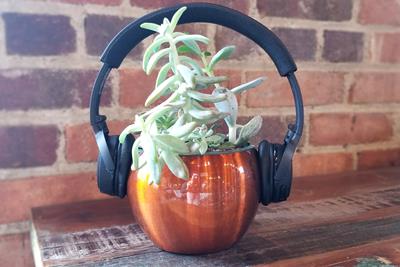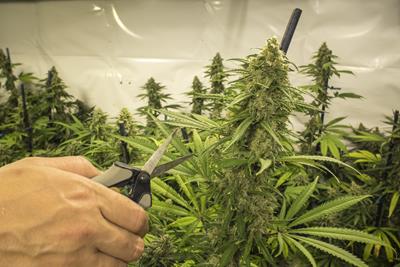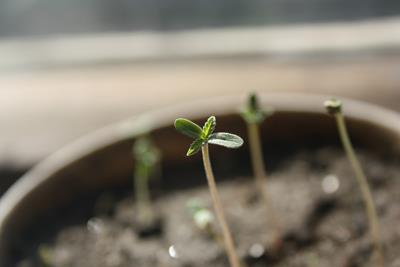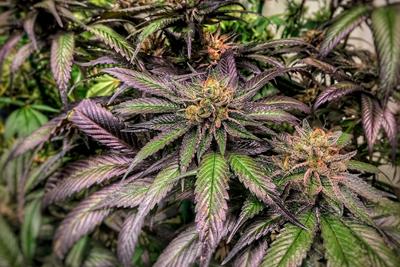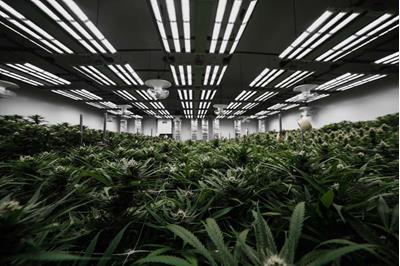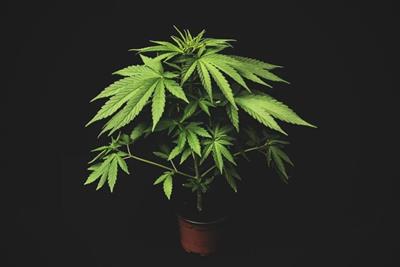
Monday November 9, 2015
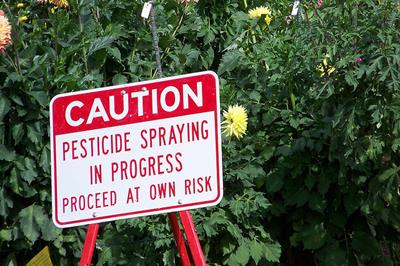 Growing
Growing
Organic fruits and vegetables are all the rage, but what about organic marijuana? Thanks to recent recalls, state and media investigations, and even a consumer lawsuit, public scrutiny is turning toward the pesticides used by many marijuana growers. These toxic and nontoxic products are designed to protect plants from destructive pests, but marijuana is a unique crop. The pesticides safe for fruits, vegetables or tobacco may not be safe when inhaled, but more importantly, there are few pesticides that have actually been tested for marijuana use.
Now that recreational marijuana is legal in four states and medical marijuana is legal in 19, agricultural and consumer laws are still playing catch-up. That includes the standards that affect pesticide use among growers, as well as the information available to consumers. It's important to understand the possible risks and specific regulations that may or may not ensure the safety of your marijuana products.
Legal Challenges and Changes
There are some limitations to pesticide regulations. Thanks to federal restrictions and the delicacy of marijuana testing methods, we still don't know very much about the effects of pesticide inhalation. Marijuana is still illegal under federal law, so no pesticides are federally approved for marijuana use. However, misuse of pesticides is also a federal violation. To comply with federal rules and ensure product safety in their own states, agencies like the Colorado Department of Agriculture (CDA) must approve their own lists of pesticides, often with ambiguous warning labels that leave room for marijuana use. Federal safety limits for food consumption may be more helpful than state lists for now. Edible marijuana products are ingested, just like the food crops that have been thoroughly tested for certain pesticides.
For example, the Environmental Protection Agency (EPA) approves pesticides for fruits and vegetables, but as a federal agency it cannot tell consumers which pesticides are safe for marijuana. Instead, states must make their own rules. One consumer lawsuit zeroed in on a fungicide called Eagle 20 EW. The ensuing investigation may change standards for Colorado growers. Farmers often use this pesticide on hops and grapes, but it is not allowed on tobacco farms and has not been tested for marijuana inhalation or ingestion. Though the lawsuit targets use of a non-approved product, the state's list of acceptable pesticides is not comprehensive.
Surprising Sources of Toxic Contaminants
Pesticides with low toxicity may be safe to consume, but they're often not powerful enough to prevent harmful outbreaks of mites and mildew. Unfortunately, some growers prioritize the quality of their product over the safety of their consumers. The Oregonian exposed several Oregon marijuana dispensaries that took toxic shortcuts in June 2015, when they tested ten products from store shelves.
Pesticide contamination isn't always intentional. Flea bombs, fly strips, nearby crops, and even the process of making concentrates can expose marijuana to chemicals that aren't intended for use on marijuana plants. The Oregon investigation revealed excessive levels of unauthorized pesticides, as well as trace amounts from everyday contaminants like these. Concentrates may also have more pesticides than the marijuana itself, just as they can have more tetrahydrocannabinol (THC) or cannabidiol (CBD).
It's important to test products for the presence of toxic chemicals and make sure plants are grown in a clean and safe environment. Regulations must also take consumption methods into account. For example, some agricultural pesticides have labels that specify temperatures. Heating and smoking an exposed plant could have respiratory effects that don't show up in ingestion tests.
No Universal Standards
Because the federal government won't test or approve pesticides for marijuana use, states are left to keep consumers safe themselves. In Colorado, pesticide use on marijuana isn't recommended, but the government does have a list of 200 pesticides that are acceptable. In New Hampshire, the only marijuana-approved pesticides are nontoxic.
Meanwhile, in Washington, state officials are tweaking their pesticide rules in anticipation of an upcoming change. In July 2016, medical and recreational marijuana will share the same market in the state, so Washington state officials filed "emergency rules" in October 2015 to clarify growing and selling policies.
In September 2015, Colorado officials investigated two Colorado growers for "pesticide misuse" and found unapproved pesticide residue in their products. The state eventually seized plants, concentrates and other products from eleven different Denver dispensaries. They found evidence of unapproved chemicals in marijuana concentrates and plants, as well as approved pesticides that exceeded legal limits.
Marijuana plants need protection from devastating diseases and infestations, especially in damp indoor conditions. However, consumers also deserve protection from the effects of inhaling harmful chemicals. As researchers learn more about non-toxic pesticide ingredients, state regulations evolve, and growers get creative, the organic marijuana business may begin to boom.
Photo Credit: jetsandzeppelins (license)
Sources:
http://www.potguide.com/, https://www.colorado.gov/pacific/agplants/pesticide-use-marijuana-production, https://www.colorado.gov/pacific/agplants/pesticides, http://www.denverpost.com/news/ci_28917964/colorado-yields-marijuana-industry-pressure-pesticides, http://www.denverpost.com/news/ci_28785675/colorado-launches-pesticide-probes-pot-grows-that-tested, https://www.rt.com/usa/317812-colorado-marijuana-pesticide-rules/, http://www.usnews.com/news/us/articles/2015/10/05/marijuana-pesticide-flap-brings-consumer-lawsuit-in-colorado, http://www.blscourierherald.com/news/334180661.html, http://www.theatlantic.com/health/archive/2015/08/pot-marijuana-pesticide-legalization/401771/, http://www.oregonlive.com/marijuana-legalization/pesticides/



